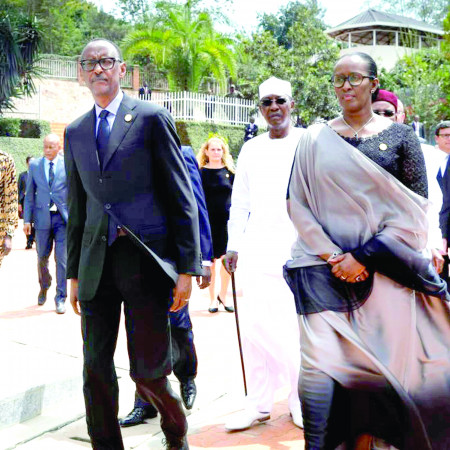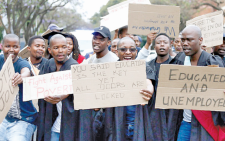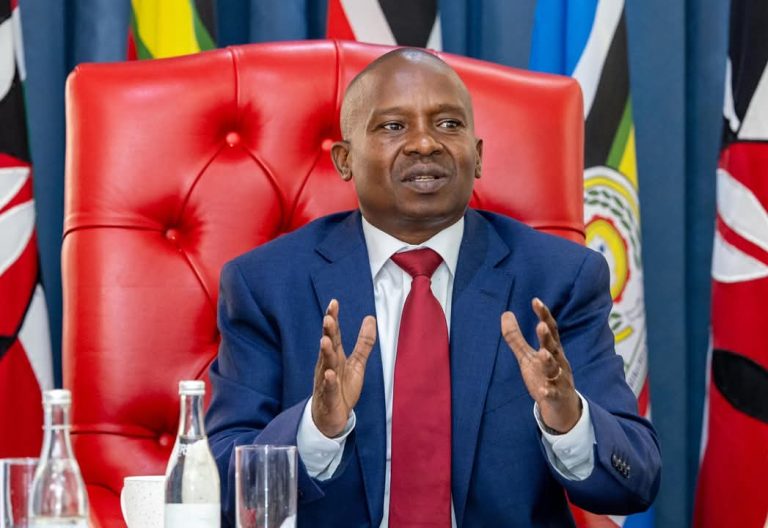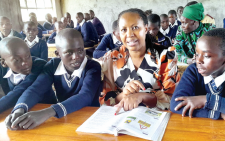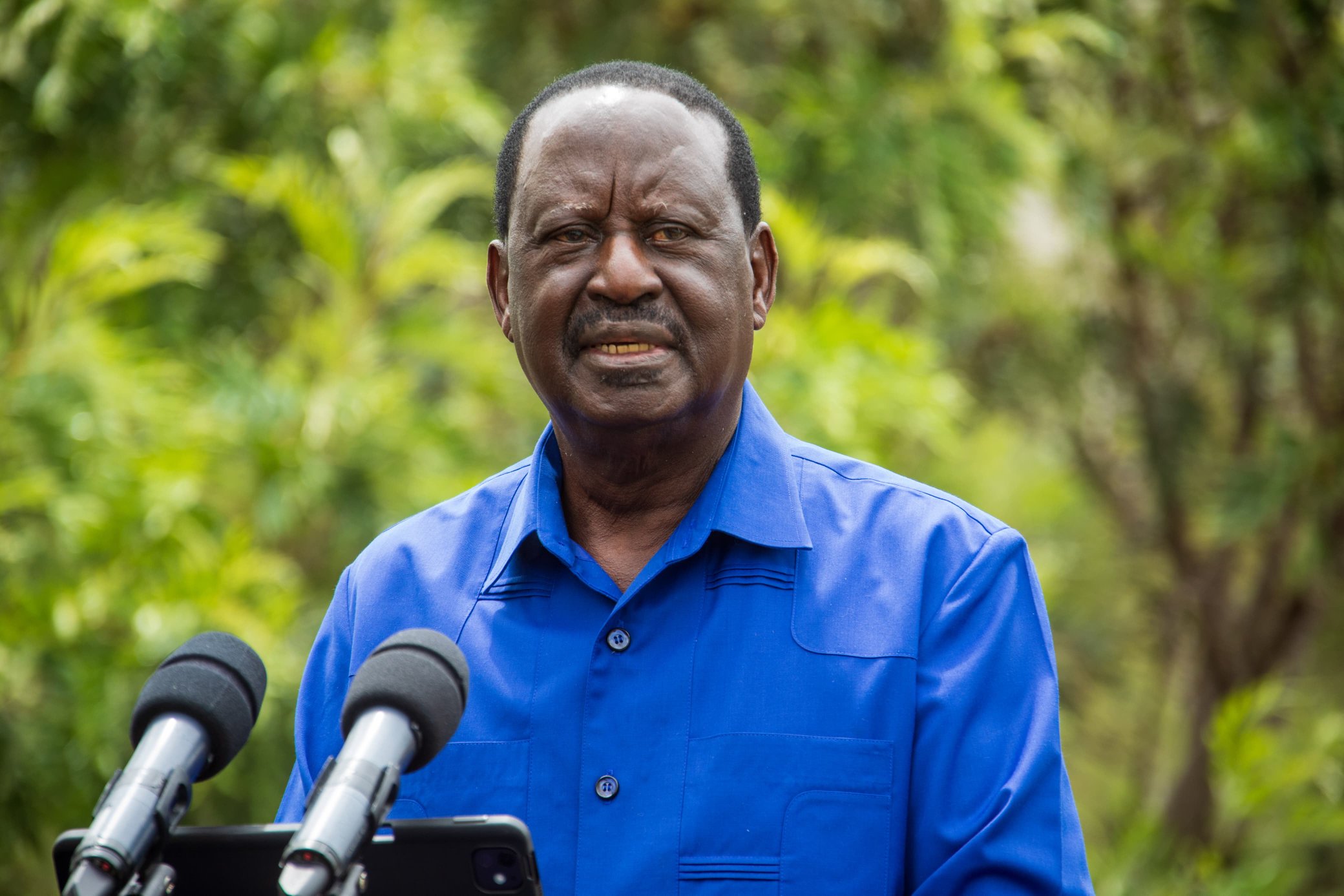Woman linked to Rwanda genocide first hid in Kenya
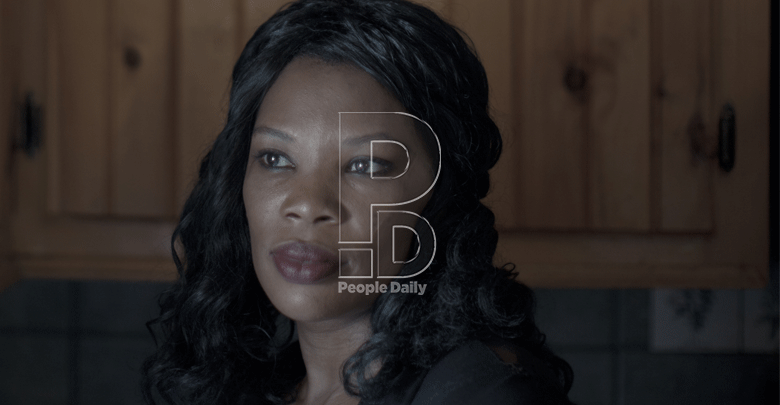
Nyaboga Kiage @NyabogaKiage
The woman who has been extradited by the United States Government over the role she played in Rwanda genocide had first escaped to Kenya before she sought refuge in America.
Ms Beatrice Munyenyezi, 51, who was deported to Rwanda over the weekend after serving a 10-year jail sentence, used unorthodox means to win herself refugee status in USA.
Ms Munyenyezi was on Friday night received by Rwandese police and officials from the National Public Prosecutor’s Genocide Fugitive Task Force, who quickly handcuffed and took her to Ramera Rwanda Investigation Bureau (RIB) station.
RIB officers are now scheduled to interrogate her as they investigate her case before handing her over to the prosecutors.
Speaking to the media after her arrival, RIB spokesperson Thierry Murangira said Munyenyezi’s deportation was a major milestone for delivery of justice to genocide victims.
Powerful relatives
“This comes at a time when there is an indictment against her over her alleged role in the genocide against the Tutsi,” he said.
Munyenyezi could face seven charges ranging from murder as a genocide crime; complicity in rape; incitement to commit genocide; extermination; complicity in genocide; planning of the genocide and conspiracy to commit genocide.
As the case gains momentum in Rwanda with her victims hoping to get justice, Ms Munyenyezi’s story cannot be told without the mention of Kenya.
Her journey from Rwanda began on July 3, 1994 when she sneaked from the country to Congo while in the company of her powerful relatives, who worked in the government.
Accompanied by her eldest daughter, Munyenyezi opted to settle in Kenya from where she gave birth to her twins in November the same year.
In January 1995, Ms Munyenyezi and her husband, Arsene Ntahobali, submitted papers seeking refugee status in the United States.
The People Daily has established that on July 24, 1997, Kenyan police and those from Rwanda stormed their house in Nairobi and arrested her husband after she was linked to the genocide that left thousands of people dead and property destroyed.
In March 1998, she finally managed to enter the US as a refugee and settled in the north-eastern State of New Hampshire with the aid of various relief agencies, which she had successfully convinced over her case.
Ms Munyenyezi settled with her brother who by then was a Prof at Western New England University in SpringField.
She then attended university and even secured a job in a city government office. In 2003, she earned herself US citizenship and even played a role in the 2005 stories dubbed “Finding Refuge in the Queen City” where she shared her story.
As she was enjoying life in her new found peaceful home in the US, back at her native home, her mother-in-law, Ms Pauline Nyiramasuhuko, and husband who had played leading roles in the extremist Interahamwe militia, which is believed to have been responsible for the deaths of more than 800,000 people mostly from the Tutsi ethnic group, were facing charges linked to the genocide.
Ntahobali and Ms Nyiramasuhuko were in 2006 sentenced to life in prison by the International Criminal Tribunal for Rwanda after they were found guilty of playing various roles in the genocide.
Downward trend
In 2008 after losing her job in the USA, she filed for personal bankruptcy after defaulting on taxes, credit card debit and a home mortgage, all-amounting to about Sh20 million.
She forfeited the house she acquired through mortgage and moved into a rental house subsidised with public housing assistance.
Troubles for her family began taking a downward trend when her sister, Prudence Kantengwa, who had also moved to the US through Kenya was charged in Boston for lying about her political affiliations and other relationships when applying for the US Visa. This is after it emerged that she was in Rwanda during the genocide.
Her woes deepened when eyewitnesses, who were testifying in her husband’s case, also said she had been a commander at a roadblock in the Southern part of Rwanda in the city of Butare where Tutsis were singled out and killed in cold blood.
Just like that Ms Munyenyezi became a wanted person and her footprints right after the 1994 genocide started being trailed, cutting short her joyous and new found life in the US when she was arrested by police.
In the US, her neighbours who gave witness accounts, said they knew her as a calm mother of three girls who arrived in the country seeking political asylum citing the civil war in Rwanda.
She was also found guilty of playing various roles in the MRND political party linked to the Hutus, which was allegedly behind several murders of Tutsi.
Court records show that she had on several occasions travelled to Tanzania where she absolved her husband from accusations of involvement in the genocide in testimonies she gave in court.
In 2017, an appeal she had filed in court over the ruling against her husband was thrown out.
US Officers investigating her case in Rwanda got a different account of Ms Munyenyezi from the one she purported to portray herself.
Investigators discovered that back in Rwanda, she had been nicknamed “the commander” and the mention of that tag triggered brutal memories of a ruthless and violent woman who was always ready to kill at any slightest provocation.
One of the accounts given by witnesses is that she once beat a small Tutsi boy to death with a spiked club.
In addition, tens of Rwandans who met her on the streets of the US raised alarm and informed the police that she was a person of interest in the 1994 genocide.
In court records apart from assaulting the Tutsi boy, officers were also told that she shot a nun in the head, poured hot tea on a rape victim and gave food to men who spent hours raping women as a reward.
They further said that she was well connected and even wore a militia uniform.
Meanwhile, one of the daughters of businessman Felician Kabuga was last week denied citizenship by France over alleged involvement in the 1994 genocide. The lady has been living in France for over 27 years.
Kabuga who was arrested in May 2020 in an apartment in Paris, France is currently being held at The Hague where he will stand trial.
The commencement date of the case is yet to be set as his team of lawyers was given time to prepare their defense.

